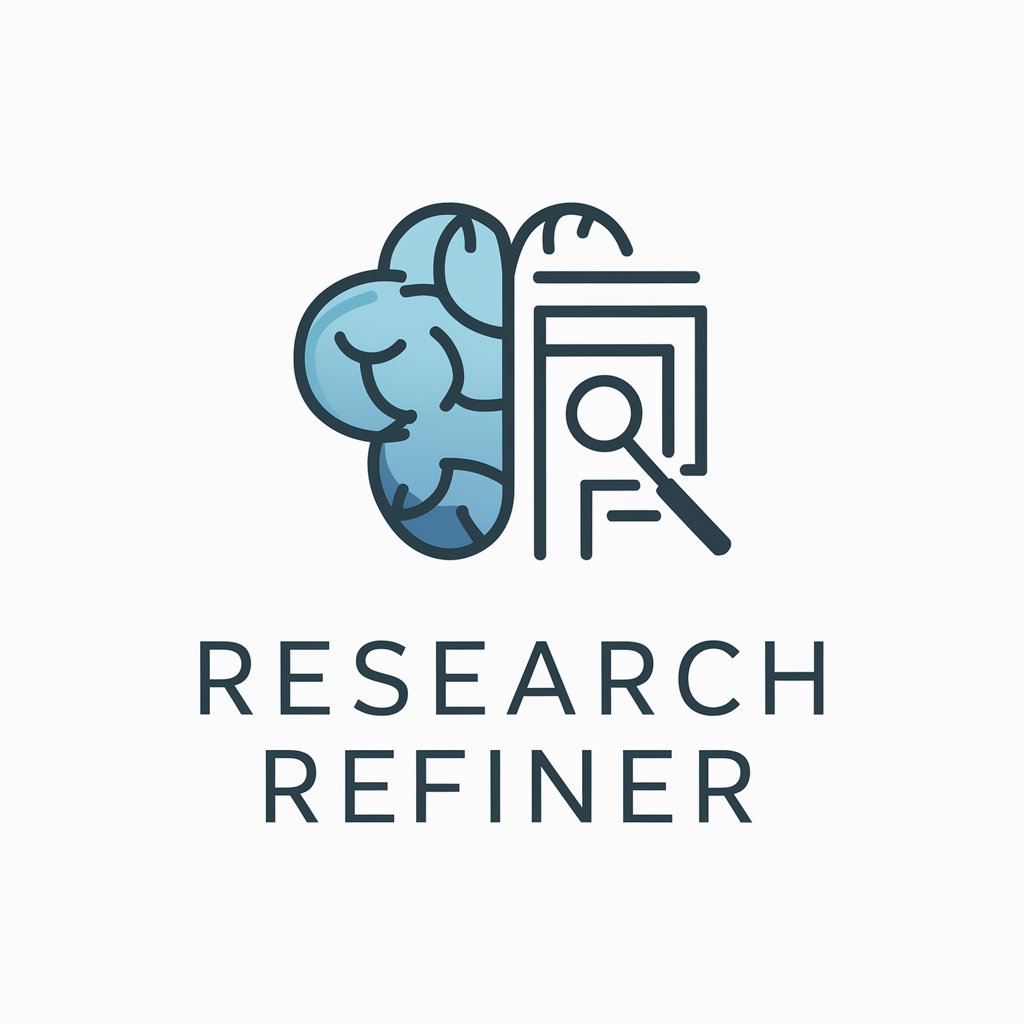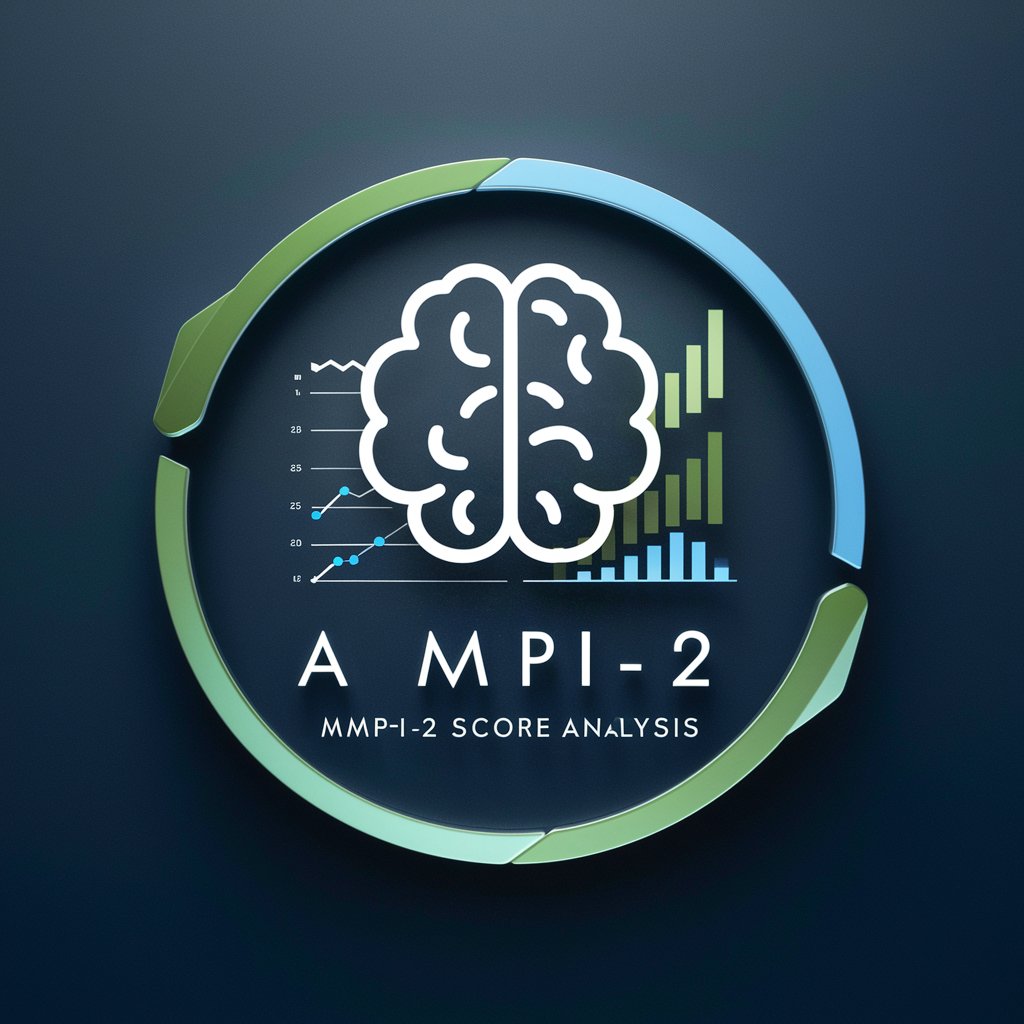Research Refiner - Semantic Research Tool

Welcome to Research Refiner, your gateway to cutting-edge academic insights.
Elevating Research with AI Insight
Explore the latest advancements in...
Summarize recent research on...
What are the current trends in...
Analyze the impact of...
Get Embed Code
Introduction to Research Refiner
Research Refiner is designed to leverage GPT's advanced natural language processing capabilities for conducting semantic searches within research literature. It aims to streamline the research process by providing comprehensive, easy-to-understand summaries and analyses of academic papers. The system interprets user queries to understand their research needs, refines these queries for precision, and fetches relevant academic articles. By doing so, Research Refiner enhances users' ability to find and comprehend scholarly articles, aiding in literature reviews, identifying research gaps, and staying current with scientific advancements. An example scenario could involve a graduate student seeking the latest studies on renewable energy storage solutions. Research Refiner would interpret this query, refine it to focus on recent publications or specific aspects of storage technology, and then provide summaries of pertinent research findings, offering a broad yet detailed overview of the field. Powered by ChatGPT-4o。

Main Functions of Research Refiner
Query Expansion and Refinement
Example
When a user inputs 'effects of climate change on agriculture', Research Refiner might expand this to include specific aspects like crop yield, soil health, and regional impacts to ensure a comprehensive search.
Scenario
This function is crucial for users who may have a broad topic in mind but are unsure of the specific areas they should focus on. It helps in narrowing down vast fields to manageable, focused queries.
Research Article Retrieval
Example
For a query on 'nanotechnology in drug delivery', Research Refiner fetches articles discussing recent advances, methodologies, and applications of nanotech in medicine.
Scenario
This is particularly beneficial for researchers and professionals looking to update their knowledge base with the most current findings in their field.
Comparative Analysis
Example
Upon retrieving articles on 'machine learning algorithms for financial forecasting', Research Refiner compares the effectiveness, application, and innovation of various algorithms across studies.
Scenario
This helps users understand the landscape of research on a given topic, highlighting similarities, differences, and the unique value of each study.
Synthesis of Information
Example
After analyzing multiple studies on 'psychological impacts of remote work', Research Refiner synthesizes the findings to outline key trends, common conclusions, and areas of disagreement among researchers.
Scenario
This function aids users in grasping the consensus and contentious points within a research area, facilitating a deeper understanding of complex subjects.
Ideal Users of Research Refiner Services
Academic Researchers
Individuals engaged in scholarly research who require access to the latest studies, literature reviews, or specific data points. Research Refiner aids in efficiently locating relevant studies, saving time and enhancing the quality of their work.
Students
Undergraduate, graduate, and Ph.D. students needing to conduct thorough literature reviews or find studies relevant to their thesis, dissertation, or coursework. Research Refiner simplifies the process of identifying and understanding pertinent research.
Industry Professionals
Professionals seeking to apply the latest scientific findings to practical applications in their field, such as engineering, healthcare, and technology. Research Refiner enables them to stay abreast of cutting-edge research that can inform product development, policy, or practice.
Policy Makers and Educators
Individuals who rely on empirical evidence to inform policies, educational content, or public health guidelines. Research Refiner provides them with accessible summaries of relevant research, supporting evidence-based decision-making.

How to Use Research Refiner
1
Access Research Refiner effortlessly at yeschat.ai for an immediate, no-login trial experience, sans the need for ChatGPT Plus.
2
Enter your research query in a clear, detailed question form to ensure the most accurate and relevant search results.
3
Utilize the Query Expansion and Refinement feature if your initial search is too broad or yields unsatisfactory results, specifying your interest or subfield for more precise information.
4
Review the synthesized summaries, comparative analyses, and contextual relevance assessments provided by Research Refiner to gain comprehensive insights into your query.
5
Explore personalized recommendations for further reading or research areas, based on the tool's analysis of the retrieved literature.
Try other advanced and practical GPTs
Share Market Assist
Empowering financial insights with AI

My Demon Girlfriend
Engage with your AI-powered demon companion.

志望動機作成サポートGPT
Empower Your Career with AI-Crafted Motivation Statements

Newsletter Writer GPT
AI-powered newsletter crafting made easy.

Professional Negotiator with Scale
Enhance negotiation skills with AI

My Demon Girlfriends
Engage with AI-powered demon sisters for a unique, personalized chat experience.

Hue Grant
Elevate presentations with AI-powered visuals.

Job Match
Empowering Your Job Search with AI

MMPI Assistant
Deciphering MMPI-2 with AI Precision

MidjourneyV6プロンプト生成
Craft Your Imagination with AI

Drone GPT: The Commercial Drone Expert Consultant
Elevate Your Drone Operations with AI

Fakemon Generator V2
Craft Unique Creatures with AI

Frequently Asked Questions about Research Refiner
What makes Research Refiner unique compared to other research tools?
Research Refiner stands out due to its advanced natural language processing capabilities, enabling it to perform semantic searches, contextual relevance analysis, and personalized recommendations based on the user's specific queries.
Can Research Refiner assist with research across all disciplines?
Yes, Research Refiner is designed to cater to a wide range of disciplines by adapting its search and analysis capabilities to the specific requirements and terminologies of different fields.
How does the Query Expansion feature work?
The Query Expansion feature automatically suggests related terms and concepts to include in your search, enhancing the breadth and relevance of the results based on the initial query.
Is Research Refiner suitable for non-academic purposes?
Absolutely. While Research Refiner is optimized for academic research, its capabilities are equally beneficial for professionals, industry researchers, and anyone in need of in-depth information on a specific topic.
How does Research Refiner ensure the accuracy of its summaries and analyses?
Research Refiner employs sophisticated algorithms to assess the thematic and contextual relevance of research papers, alongside continuous updates and improvements based on user feedback to maintain high accuracy and comprehensiveness.
